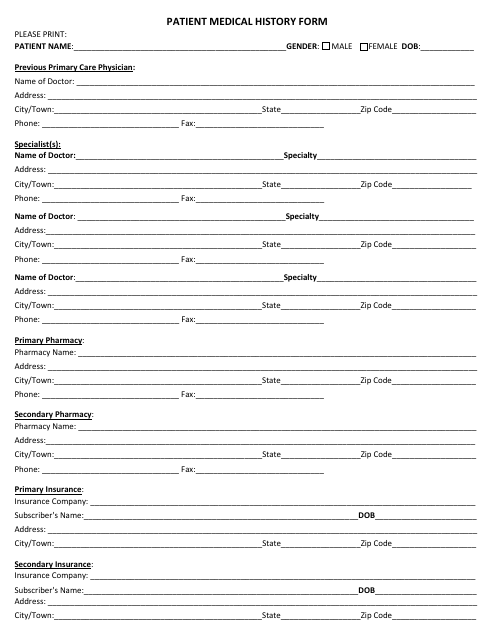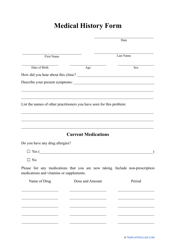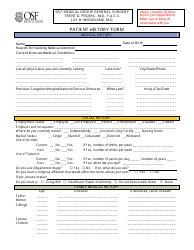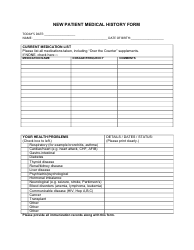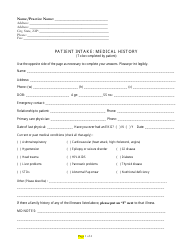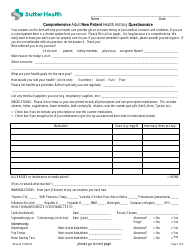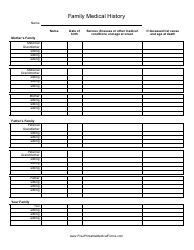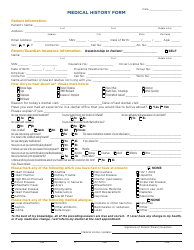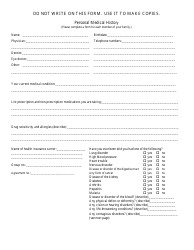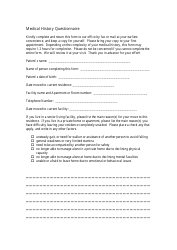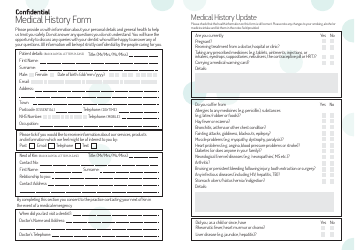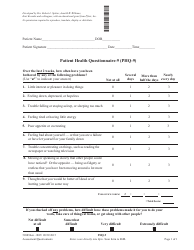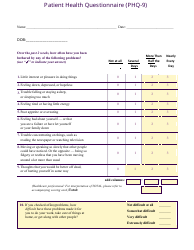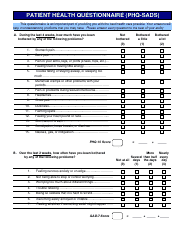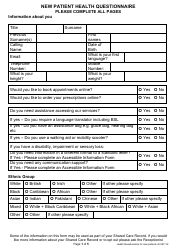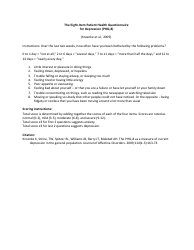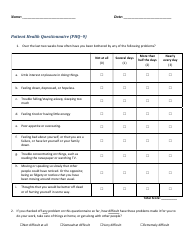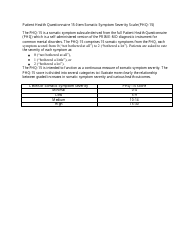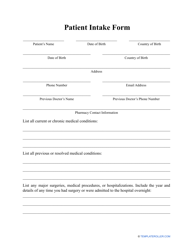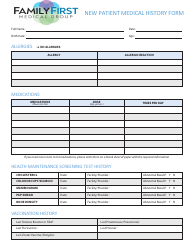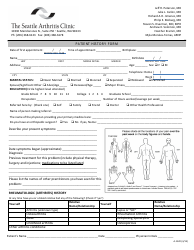Patient Medical History Form - Lines
A Patient Medical History Form, often included in a patient's medical records, is used to gather comprehensive information about the patient's past and current medical conditions, allergies, medications, surgeries, and familial health history. The "Lines" in these forms are spaces provided for patients to fill out this important information. They allow healthcare providers to understand the patient's health history, identify any potential health risks, and determine the best course of action for the patient's treatment and management plan. It's crucial that the patient fill out these lines as accurately as possible to ensure effective and safe medical care.
The Patient Medical History Form - Lines is typically filed by the patient themselves. This document is used to record an individual's medical and health history, including past illnesses, surgeries, allergies, and current medications. If the patient has any limitations or cannot fill the form, a family member, a healthcare proxy, or a caregiver may assist. The form is then reviewed by the healthcare provider to get a full understanding of the patient's health history and status.
FAQ
Q: What is the purpose of a Patient Medical History Form?
A: A Patient Medical History Form is used by healthcare providers to gather detailed information about a patient's past and present health conditions, surgeries, medications, allergies, lifestyle, family history of diseases, and more. It helps to provide quality patient care and create a treatment plan.
Q: What type of information is included on a Patient Medical History Form?
A: A Patient Medical History Form typically includes information about the patient's past and present illnesses, hospitalizations, surgeries, allergies, medications, family medical history, lifestyle (like smoking, alcohol consumption, diet, exercise), health screenings, immunizations, and mental health history.
Q: What does 'Lines' in the context of a Patient Medical History Form mean?
A: 'Lines' refer to specific sections or items on a Patient Medical History Form where patients provide their information. For example, a line for 'previous surgeries' would require patients to list any past surgical procedures.
Q: Why do healthcare providers require a Patient Medical History Form?
A: Healthcare providers require a Patient Medical History Form to ensure they have a comprehensive understanding of a patient's health background. This information can help them to make accurate diagnoses, prescribe appropriate treatments, identify potential health risks, offer preventive care advice, and monitor changes over time.
Q: How often do I need to update my Patient Medical History Form?
A: A Patient Medical History Form should ideally be updated any time there is a change to your health. For instance, if you have a new diagnosis, surgery, medication, allergy, or a significant change in lifestyle, these changes should be reflected in your medical history.
Q: Is the information provided on a Patient Medical History Form confidential?
A: Yes, the information provided on a Patient Medical History Form is kept confidential according to the Health Insurance Portability and Accountability Act (HIPAA) in the United States. Similar privacy laws exist in Canada, India, Australia, and most other countries. Healthcare providers are not allowed to share your medical information without your written consent, except in specific situations required by law.
Q: Who can access my Patient Medical History Form?
A: Your Patient Medical History Form is primarily accessed by your healthcare providers for diagnostic and treatment purposes. Other parties, like insurance companies or legal representatives, might also access it only with your written consent or in certain situations stipulated by law.
